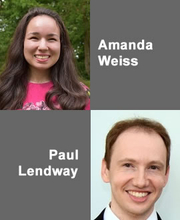AMERICAN POLITICS & PUBLIC POLICY WORKSHOP
This convening of the American Politics and Public Policy Workshop will feature two presentations by Yale graduate students in political science, Amanda Weiss and Paul Lendway. This workshop is open to the Yale community only.
Amanda Weiss: “Federalism as Natural Experiment? Modern Difference-in-Difference with 50 Units”
Abstract: What makes modern difference-in-difference methods viable for empirical American politics settings? Modern estimators for causal effects in panel data address parallel trends violations, unjustified parametric assumptions, and other issues common to observational settings. These methods, however, tend to produce larger standard errors than classic methods do, constraining statistical power. Often, they also entail strong assumptions about exogeneity. In this paper, I ask what assumptions make modern and conventional DID estimators work for a familiar “natural experiment” setting in the American politics literature—time-series cross-sectional analysis of state policy effects. In particular, using a Monte Carlo approach, I derive power under two sets of assumptions for two modern estimators—the group-time average treatment effect estimator (Callaway & Sant’anna) and the generalized synthetic control estimator (Xu 2017), as well as two classic estimators—the standard random-effects and fixed-effects estimators. While the random effects estimator can detect an effect size as small as 20% (given 22 time periods) under pooling assumptions, other estimators need larger effect sizes or considerably more time periods to be well-powered. Under a less optimistic data-generating process consistent with two-way fixed effects estimator, power decreases. Suggestions for applied researchers and next steps for the project—most importantly, simulations under more adversarial conditions—are noted.
Amanda Weiss is a PhD student in political methodology, also getting an MA in statistics. Her dissertation project takes up three common challenges in applied causal inference: statistical power with panel data, row missingness in administrative data, and trauma ethics with human subjects. Before coming to Yale, she received a BA and MS from Columbia.
Paul Lendway: “Group Reclassification Theory: How Thin Populist Appeals Increase Public Support for Democratic Backsliding”
Abstract: Do thin populist appeals from elites increase support for democratic backsliding at the individual level and, if so, how? This paper explores this question by presenting and testing the group reclassification theory (GRT) of populism. GRT posits that thin populist appeals operate partly through in-group legitimization and out-group delegitimization, thereby recasting public preferences to support democratic backsliding. Using a set of survey experiments (N = 3,791), this paper shows that thin populist appeals increase support for violating democratic principles. This study also considers the effects of thin populist appeals on the theoretically-posited mechanisms, in-group legitimization and out-group delegitimization, finding that the good people’s thwarted will component elevates in-group legitimization whereas the anti-elite component heightens out-group delegitimization. The former increases candidate favorability whereas the latter enhances support for violating democratic principles. Therefore, both mechanisms of thin populist appeals work together to strengthen mass support for democratic backsliding.
Paul Lendway is a fifth-year Ph.D. candidate in political science at Yale University studying inequality, populism, and social movements. His research has been published in American Politics Research, Environmental Politics, and the Yale Journal of International Affairs. He has presented his research at a wide range of organizations, including the American Political Science Association, Harvard University, the University of Pennsylvania, and Yale University.
